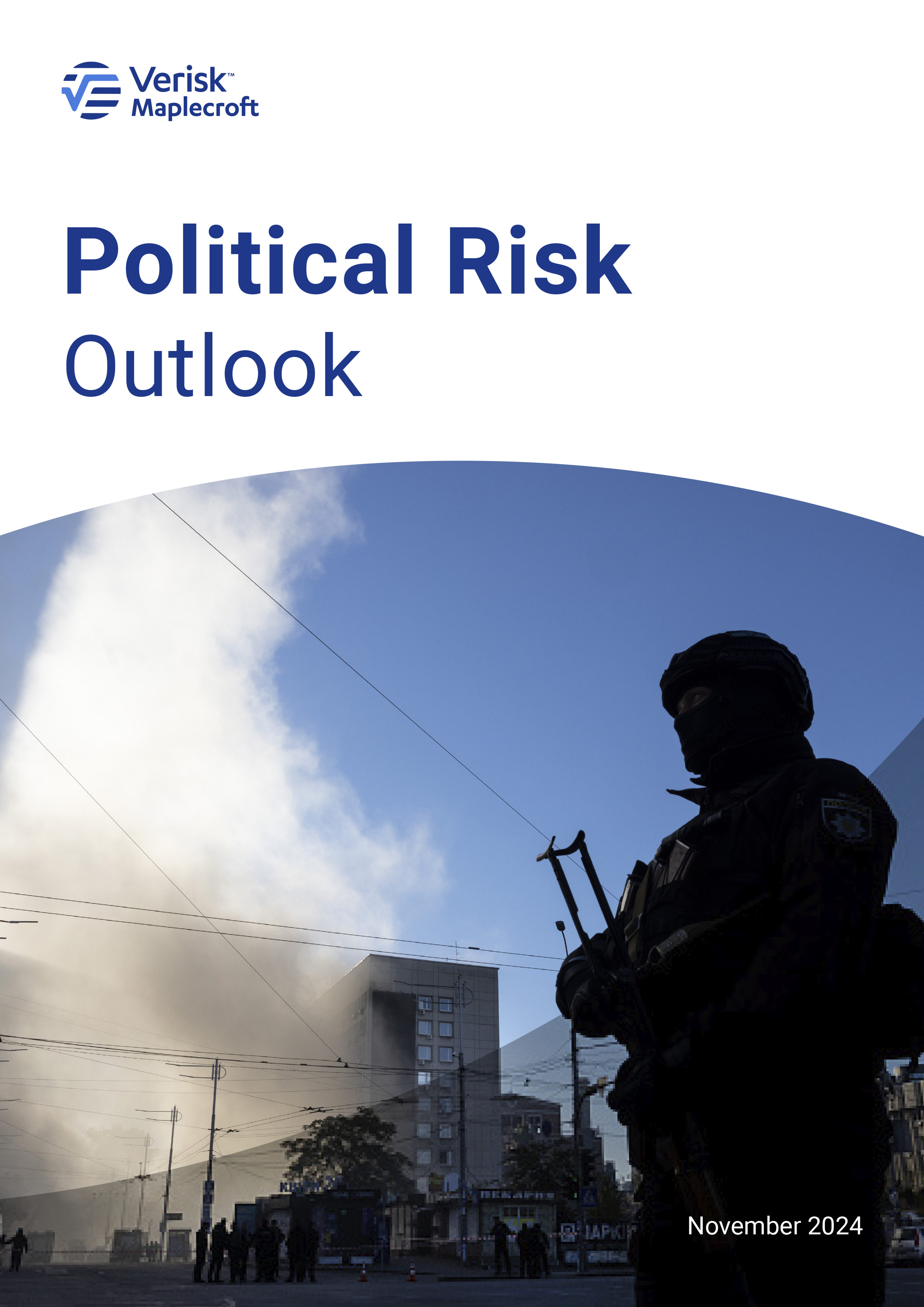Bar a cancelled and postponed presidential election in Romania, now set for May 2025, the results for 2024’s election ‘super-cycle’ are in. It was a bad year to be in power. Of the 60 countries holding national elections last year, more than half experienced a change in government, a new leader or an inconclusive result. In the 33 states where elections are typically free and fair, according to an indicator of our Democratic Governance Index, only four governments emerged unchanged.
Figure 1: More than half of countries that held elections this year experienced changes in government, a new leader or an inconclusive result
Developed markets the most vulnerable, a mixed picture for emerging markets
Incumbents in wealthy countries were the most exposed. All nine developed market economies holding elections last year experienced changes in leader or government – with the United States serving as the most prominent example. Reasons vary from country to country, but a connecting factor was inflation stoked by the twin crises of COVID-19 and the Russia-Ukraine war. This was a crucial factor in rich countries with citizens unused to rapid swings in the rate of inflation, which contrasts with voters in emerging markets.
In emerging or frontier markets, the picture was more mixed. In India, for example, Narendra Modi held on to power but lost his majority. In other cases, new leaders, in Mexico and Indonesia for example, were the favoured candidates of popular predecessors who had reached their term limits. However, there’s no guarantee that former and current leaders will see eye-to-eye – the fraying Marcos-Duterte alliance in the Philippines is a cautionary example. Where elections were not competitive, in Russia or Venezuela for example, the outcome was predictable.
Figure 2: Unusual swings to the rate of inflation a key factor in election results for developed economies
Competitive elections act as a pressure release valve, interference can have the opposite effect
A clear takeaway from 2024’s election ‘super-cycle’ is that election-related violence in states with competitive elections is rare (see map). Where voters have genuine choice, they are free to express their anger through the ballot box. However, when citizens don’t have this choice, they are often prepared to demand it through direct action.
Figure 3: Disputed results or alleged interference a common factor in election-related unrest for 2024
Of the seven states that experienced major and/or violent election-related unrest last year, only one, Senegal, has a history of free and fair polls according to our Democratic Governance Index. And in that case the unrest was triggered by the decision of former Senegalese president Macky Sall to postpone the presidential election. When the elections did go ahead in March they passed peacefully and saw the opposition candidate emerge victorious. For other states where there was major election-related unrest, allegations of interference or rigging were typically the cause.
Figure 4: Election-related unrest in 2024 feeds into elevated risks
What can 2024 tell us about 2025?
2025 does not offer a new electoral super-cycle, but the lessons of 2024 will continue to resonate. Incumbent governments in Australia, Germany, and Norway will face difficult election campaigns as the long tail of the 2021-23 cost of living crisis continues to bite. Canada’s prime minister Justin Trudeau seemingly jumped before he was pushed, though his eventual replacement is unlikely to fare better in upcoming elections.
Meanwhile, in emerging markets or countries without a track record of free and fair elections, interference, alleged or otherwise, could provoke bouts of election unrest. Countries with a recent history of political strife, such as Bolivia, Ecuador and Gabon, are due to stage pivotal elections.

